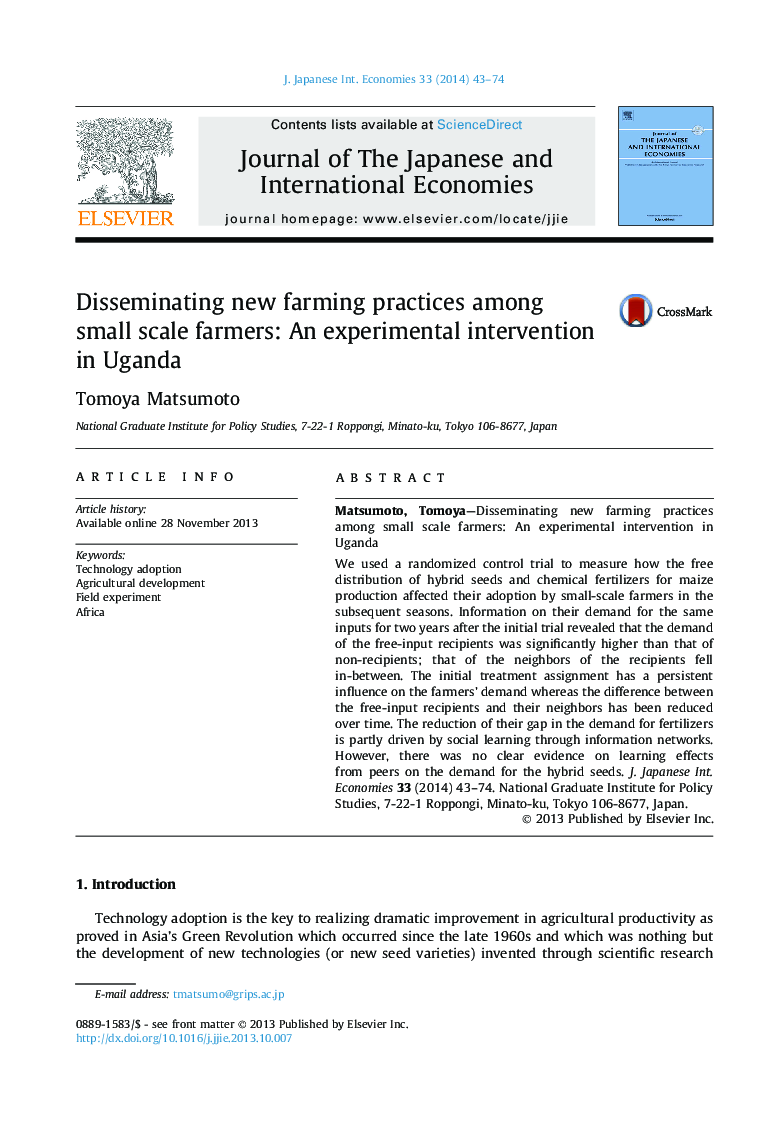| Article ID | Journal | Published Year | Pages | File Type |
|---|---|---|---|---|
| 964522 | Journal of the Japanese and International Economies | 2014 | 32 Pages |
•We conduct an RCT in which new farm inputs were distributed to small-scale farmers.•We follow up their adoption and application levels of the new inputs over two years.•The input demand of the free-input recipients was higher than that of non-recipients.•The initial treatment assignment has a persistent influence on the farmers’ demand.•Spillover effects are observed but limited due to low profitability of the inputs.
We used a randomized control trial to measure how the free distribution of hybrid seeds and chemical fertilizers for maize production affected their adoption by small-scale farmers in the subsequent seasons. Information on their demand for the same inputs for two years after the initial trial revealed that the demand of the free-input recipients was significantly higher than that of non-recipients; that of the neighbors of the recipients fell in-between. The initial treatment assignment has a persistent influence on the farmers’ demand whereas the difference between the free-input recipients and their neighbors has been reduced over time. The reduction of their gap in the demand for fertilizers is partly driven by social learning through information networks. However, there was no clear evidence on learning effects from peers on the demand for the hybrid seeds.
